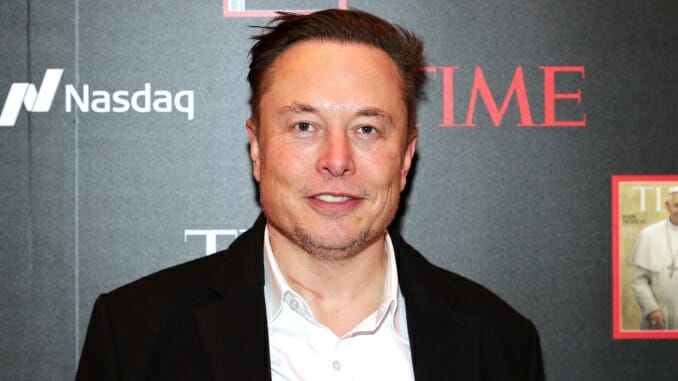No Matter Who Wins The Elon Musk/Twitter Battle, No One Wins
Image via Theo Wargo/Getty Images for TIME
After months of dropping hints that he would, Tesla CEO Elon Musk announced his intention to pull out of his deal to buy Twitter on Friday. No one should be surprised. This outcome was always a possibility dating back to just days after Twitter accepted Musk’s memeified, inflated offer of $54.20 per share when he disparaged lead Twitter lawyer and safety director Vijaya Gadde despite a clause in the merger agreement barring him from badmouthing Twitter employees during the deal’s approval period.
Musk’s stated reason for pulling out of the deal centers on Twitter’s process for identifying and removing bot accounts from the platform. According to the filing, Musk believes that Twitter is withholding information about the number of bots on the platform and that is reason enough for him to end efforts to purchase the company for $44 billion. He made these claims despite Twitter giving him internal information on the amount of bot accounts and Twitter CEO Parag Agrawal outlining the site’s approach to identifying and eliminating spam accounts in a public Twitter thread. Musk responded to that thread with a poop emoji.
The validity of Musk’s claim and the legalities that surround its relationship to the merger agreement will now likely be answered in Delaware court, but the more this battle of billion-dollar entities plays out, the more it feels like there is nothing waiting for the victor in the winner’s circle.
If Musk is able to actually exit the deal without being legally forced to complete it, he’ll still likely have to pay $1 billion or more to do so. While his sycophant fans would likely celebrate this outcome as another example of Musk’s “genius,” it would damage his reputation in corporate circles to some extent.
-

-

-

-

-

-

-

-

-

-

-

-

-

-

-

-

-

-

-

-

-

-

-

-

-

-

-

-

-

-

-

-

-

-

-

-

-

-

-

-








































